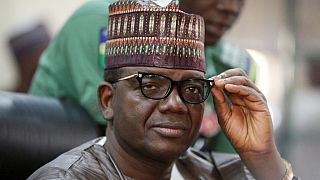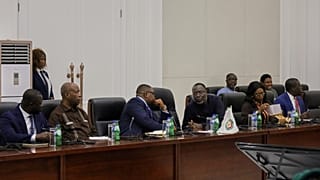Nigeria
Nigerian President Muhammadu Buhari on Friday approved an amended electoral law that will allow electronic transfer of vote results during the 2023 elections in a bid to improve transparency.
Ballots in Nigeria have often been marred by electoral fraud claims and court challenges since the country returned to civilian rule in 1999.
The bill allows the INEC election commission to authorise electronic transmission of voting results and the electronic registration of voter identities to help prevent fraud.
"There are salient and praiseworthy provisions that could positively revolutionise elections in Nigeria through the introduction of new technological innovations," Buhari said during the signing of the bill.
"These innovations would guarantee the constitutional rights of citizens to vote and to do so effectively."
A dispute over the electronic transfer of votes erupted in the senate last year during a debate over the law, when the ruling APC party said INEC could only manage the electronic ballot transfer with the national telecoms commission.
That outraged the opposition, which said the move would undermine the independence of INEC. The senate later voted to allow INEC to decide.
Buhari, who was first elected in 2015, had initially rejected the new law over its inclusion of primaries to choose candidates, claiming it would infringe on party bylaws and lead to insecurity during the polls.
A former military ruler, he will step down after serving two four-year terms, and political leaders are already manoeuvring for position before the February 2023 ballot.
No clear candidate has yet emerged to replace Buhari, but the ruling APC party already has several hopefuls, including influential former Lagos governor Bola Tinubu.
The country's independent electoral commission INEC came under fire after Buhari's re-election in 2019 over claims the ballot was not free or transparent.
The opposition challenged the results in court in part because of concerns over the legality of the electronic transfer of tallies.
Buhari won 56 percent of the 2019 vote, but his rival Atiku Abubakar of the People's Democratic Party (PDP) filed a challenge in the Supreme Court.













01:20
Nigeria school kidnapping: 250 children still held two weeks on
01:13
United Nations decries crackdown on opposition ahead of Ugandan elections
00:55
US to restrict visas for Nigerians involved in violence against Christians
01:00
Dangote invites petroleum regulator to verify output figures
01:05
ECOWAS delegation in Guinea-Bissau for talks with coup leaders
01:11
Hundreds protest in Spain in support of Christians kidnapped in Nigeria